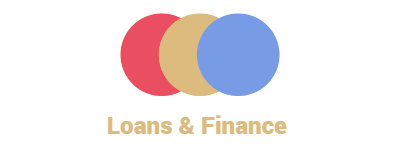Understanding Interest Rates on Private Student Loans: A Crucial Factor in Your Education Journey
As the cost of higher education continues to rise, many students are forced to take out private student loans to cover the gap between financial aid and tuition fees. While these loans can provide much-needed relief, they often come with interest rates that can have a significant impact on your overall debt burden.
A Rising Concern: High Interest Rates on Private Student Loans
With interest rates on private student loans ranging from 6% to over 18%, it’s essential to understand how these rates work and what you can do to minimize their effect. Are you wondering how your interest rate is determined, or how you can avoid paying more than necessary? In this article, we’ll delve into the world of private student loan interest rates, exploring factors that influence them, and providing tips on how to navigate the complexities.
Interest Rates on Private Student Loans
Understanding Interest Rates on Private Student Loans: A Crucial Factor in Your Education Journey
As the cost of higher education continues to rise, many students are forced to take out private student loans to cover the gap between financial aid and tuition fees. While these loans can provide much-needed relief, they often come with interest rates that can have a significant impact on your overall debt burden.
A Rising Concern: High Interest Rates on Private Student Loans
Interest rates on private student loans can range from 6% to over 18%, which is significantly higher than federal student loan rates. For example, the fixed interest rate for a Direct Subsidized and Unsubsidized Loan is currently around 4% ¹. The high interest rates on private loans can result in a substantial amount of interest paid over the life of the loan.
Private student loan interest rates are influenced by several factors, including:
- Your credit score: A good credit score can help you secure a lower interest rate.
- The lender’s terms and conditions: Different lenders offer varying interest rates and repayment terms.
- The type of loan: Some private student loans may have variable or fixed interest rates, depending on the lender and the loan terms.
To minimize the impact of high interest rates on your debt burden:
- Shop around: Compare interest rates from different lenders to find the best deal.
- Borrow wisely: Only borrow what you need, and consider alternative sources of funding, such as scholarships or part-time jobs.
- Pay attention to fees: Some private student loans may have origination fees or late payment fees that can add up quickly.
Interest Rates on Private Student Loans
Struggling with Student Loan Payments?
See if You Qualify for Lower Payments & Better Rates – Speak with an Expert Now!
💬 Start Free ChatInterest Rates on Private Student Loans FAQ
-
Q: What is the average interest rate for private student loans?
A: The average interest rate for private student loans can vary depending on the lender, borrower’s credit score, and other factors. According to a recent survey, the average interest rate for private student loans in the United States was around 9.4%.
-
Q: How do lenders determine my interest rate?
A: Lenders consider several factors when determining your interest rate, including:
- Your credit score
- The type of loan you’re applying for (e.g., variable-rate or fixed-rate)
- The lender’s overall lending policies and risk assessment
- Other financial factors, such as your income and debt-to-income ratio
-
Q: Are there any private student loans with low interest rates?
A: Yes, some private lenders offer lower interest rates than others. For example:
- Sallie Mae offers a range of fixed-rate and variable-rate loan options starting at around 6.5%
- Discover Student Loans offers a variable-rate loan with an APR ranging from 4.25% to 12.49%
- Other lenders, such as Citizens Bank and Wells Fargo, also offer competitive interest rates
-
Q: Can I negotiate my interest rate with the lender?
A: In some cases, you may be able to negotiate your interest rate with the lender. This is more likely if:
- You have a strong credit score
- You’re applying for a large loan amount
- You’re willing to consider a longer repayment term or other flexible repayment options
Conclusion: Understanding Interest Rates on Private Student Loans
In today’s rising cost of higher education, private student loans have become a necessary evil for many students. With interest rates ranging from 6% to over 18%, it’s crucial to comprehend how these rates work and what you can do to minimize their impact. By understanding the factors that influence interest rates on private student loans, such as credit score, lender terms, and loan type, you can make informed decisions about borrowing and repayment.
To navigate the complexities of private student loans, it’s essential to shop around for the best interest rate, borrow wisely by only taking out what you need, and pay attention to fees. Additionally, being aware of your credit score and lender terms can help you negotiate a better interest rate.
Remember, understanding interest rates on private student loans is key to making smart financial decisions about your education journey.
What is the Best Online Payday Loan Company?: Discover the top online payday loan companies that offer fast and reliable services. Learn how to choose the best one for your financial needs.
